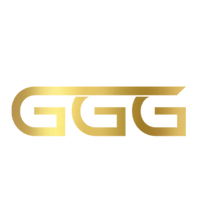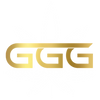What's the difference between CBD and THC?
THC and CBD are two of the most talked about compounds in cannabis. The cannabis plant has over 114 cannabinoids. Cannabinoids are chemical compounds that affect your body in different ways once ingested.
Recently, interest has been drawn to CBD and THC's potential health benefits and effects. In this article, we'll explore the key differences between THC and CBD so that you can make an informed decision about what's right for you.
What is CBD?
Cannabidiol (CBD) is the second most researched cannabis compound. The non-psychoactive cannabinoid is found in cannabis and hemp. CBD can be extracted from either plant and then used to make CBD products, like capsules, topicals, CBD oil, or natural terpene tinctures that can be sold legally as long as it's under the 0.3% THC limit.
CBD does not cause impairment, intoxication, or euphoria at these low doses. Several CBD users prefer using its products for post workout recovery because it doesn't cause a high feeling. Instead, you will experience its many therapeutic effects on your body and mind.
What is THC?
Delta-9 THC is the most researched and main psychoactive compound found in cannabis. It’s responsible for your " high " when you smoke pot. THC binds to cannabinoid receptors in your brain that lead to feelings of euphoria and relaxation.
According to the NIDA, THC activates brain receptors by signaling the brain to release dopamine hormone. The dopamine transmitter hormone is responsible for mood and pleasure. If dopamine is released in excess, one is likely to experience a feeling of euphoria. THC can be ingested by smoking marijuana and dabbing concentrates.
CBD and THC affect the endocannabinoid system (ECS). The ECS is responsible for maintaining homeostasis. Studies are still underway as researchers try to understand how the system works. However, what we already know is it's responsible for various processes, which include:
•Mood
•Appetite
•Memory
•Fertility
•Sleep
While THC and CBD share similarities, there are some critical differences between the two compounds.
Psychoactive Properties
CBD and THC affect brain receptors differently. As a result, CBD does not manifest psychoactive effects—CBD won't make you high.
On the other hand, THC has psychoactive effects and can get you high.
Chemical Structure
THC and CBD's chemical structure is similar to your body's endocannabinoids. Endocannabinoids are natural neurotransmitters found in the human brain.
The neurotransmitters act as chemical messengers, transmitting signals from the body to the brain through nerve cells.
The molecular structure of THC is similar to that of CBD. Their difference is in the arrangements of cannabinoid molecules. The molecules bind to receptors by mimicking natural endocannabinoids, leading to different effects.
In contrast, CBD has fewer carbon atoms than THC.
Drug testing for CBD and THC
For THC (tetrahydrocannabinol) or its metabolites to show up on a urine test, it must be active in the body. If someone has taken isolate CBD products, they won't have traces of THC in their system. CBD is legal. Tests are not designed to check for it.
THC can be detected in a drug test, and it will show up, especially in most standard drug tests.
Wrap Up on CBD and THC Differences
THC and CBD have their differences when it comes to their effects on the body. Hence, it is essential to be aware of what these substances do to make an informed decision on whether or not they're suitable for you.
Green Garden Gold offers the best THC and CBD products from US-grown hemp to enhance your health and wellness.


